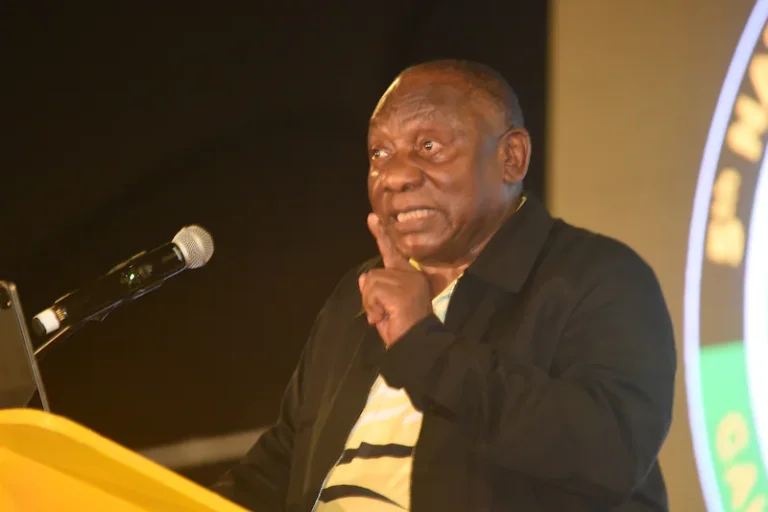
The unexpected death of former Minister of Arts and Culture, Nathi Mthethwa, has thrown South Africa into political turmoil, sparking fierce debate and speculation. What began as a tragedy soon evolved into a national mystery after investigators reportedly discovered Julius Malema’s number among the final calls made on Mthethwa’s phone just moments before his death. The revelation has raised questions that cut deep into the heart of South Africa’s political establishment.

Authorities were initially tight-lipped, but insiders confirmed that Mthethwa’s phone records pointed to a call made to a number belonging to the Economic Freedom Fighters (EFF) leader. Malema, known for his fiery speeches and outspoken criticism of the ruling African National Congress (ANC), immediately came under intense scrutiny. As public curiosity grew, theories about political rivalries, betrayal, and silenced secrets began to circulate.
Mthethwa’s death itself remains shrouded in mystery. Found lifeless under unusual circumstances, the former minister’s passing left a vacuum in the ANC and rekindled concerns about the dangers of political infighting. Investigators have not ruled out foul play, especially given Mthethwa’s involvement in high-level discussions that reportedly threatened powerful interests within the government.
Malema, however, has fiercely denied any wrongdoing. Taking to social media, he dismissed the allegations as a “smear campaign” designed to tarnish his image and weaken his political influence. “The truth will prevail,” he declared, framing the controversy as part of a broader effort to silence dissent. Despite his confidence, the revelation placed him at the center of a storm, forcing both supporters and critics to question who could be trusted.
As the investigation progressed, new layers of intrigue emerged. A whistleblower reportedly came forward, claiming that Mthethwa had been in possession of sensitive documents implicating several high-ranking government officials in corruption. These allegations fueled speculation that his death may have been an orchestrated act to prevent the release of damaging information. Theories of conspiracy and cover-ups soon dominated headlines, as citizens demanded transparency from both the ANC and law enforcement.
The unfolding drama also intensified the rivalry between the EFF and the ANC, two of South Africa’s most powerful political forces. Malema used the moment to position himself as a victim of political persecution, rallying his supporters around a message of justice and reform. His fiery rhetoric resonated with many South Africans disillusioned by corruption and inequality, turning suspicion into sympathy and transforming him from a potential suspect into a symbol of resistance.
When the final investigative report was released, it stopped short of linking Malema directly to Mthethwa’s death. Instead, it painted a troubling picture of systemic corruption and deep-rooted political manipulation within the ANC. The findings sparked widespread outrage and renewed calls for accountability at the highest levels of government.
In the aftermath, Mthethwa’s death became more than a mystery — it became a turning point. It exposed fractures within South Africa’s political elite and galvanized public demand for reform. As Malema’s political star continued to rise, many saw in him both controversy and courage — a man standing defiant in a system many believe is broken.
The echoes of that final phone call continue to haunt the nation. Whether it was a coincidence or the key to uncovering a larger truth, one thing is certain: the mystery of Nathi Mthethwa’s death has left South Africa questioning not just what happened that night, but who truly holds power behind the scenes.







